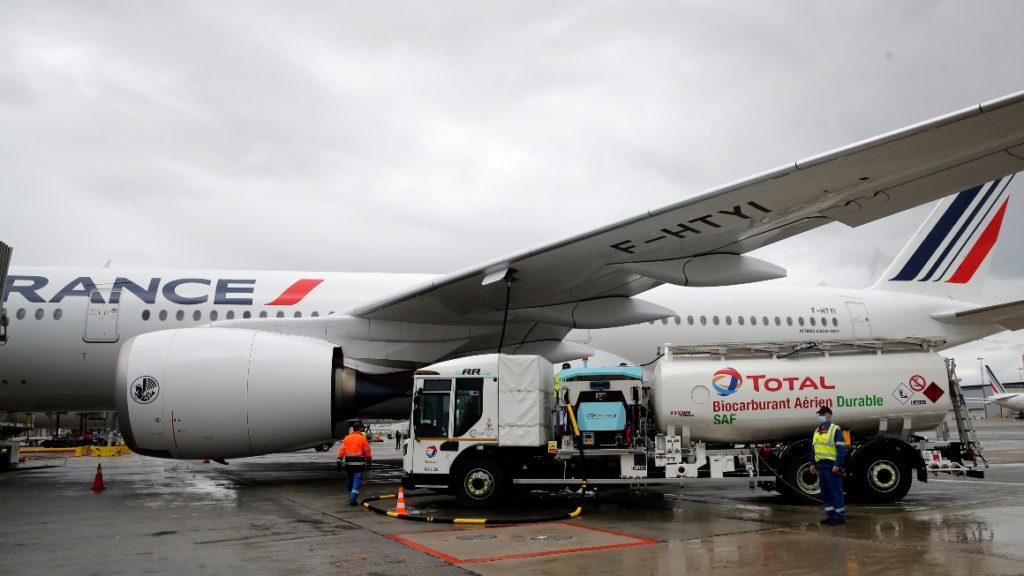Fuels made from plant and animal waste are in hot demand as companies that operate planes, trucks, trains and ships want to use them to lower climate impacts.
A coalition of truck stop owners and diesel distributors argues that a provision in Democrats’ Build Back Better Act would give the aviation fuel market an unfair advantage in accessing the limited supply of oils and fats, with negative consequences for the planet.
Build Back Better would authorize a $1.25-per-gallon tax credit for SAF that reduces emissions by at least 50 percent compared with conventional jet fuel.
Aircraft contribute about 10 percent of the industry’s emissions, while medium- and heavy-duty trucking, rail and shipping combined contribute about 28 percent, according to the EPA.
Kim Carnahan, director of disruption technologies at ENGIE Impact, a sustainability consulting firm, had another assessment.
By then, road transport could be moving toward electrification or other technologies like hydrogen fuel, said Carnahan, who also manages the Sustainable Aviation Buyers Alliance.
Only a few million gallons of SAF are in production, representing far less than 1 percent of the sector.
Their executives also say they are watching where the SAF tax credit lands and may consider making the fuel if the economics are right.
One of the primary barriers to expanding renewable diesel alone is the availability of fat, oil and grease feedstock, EIA said.
The consulting firm that authored that report, LMC International, prepared a separate study two months earlier for the National Association of Truck Stop Operators that determined a finite supply of waste oils and fats could shift from renewable diesel to SAF if Congress passes extra tax credits for aviation.
There will be limited supply of waste oils and fats in the short term because it will take time to set up new supply networks, according to Andrea Kavaler, the firm’s executive vice president.
SAF is already eligible for similar incentives as bio-based diesel, including the federal Renewable Fuel Standard, said Neville Fernandes, vice president of corporate affairs and development for the Renewable Energy Group.
SAF proponents say that ignores the current market reality, which favors renewable diesel by wide margins.
“We also have to go to new feedstocks,” he said.
Other SAF makers, including LanzaJet, say the new tax credits will help scale other technologies that don’t rely on fats, oil and greases.
